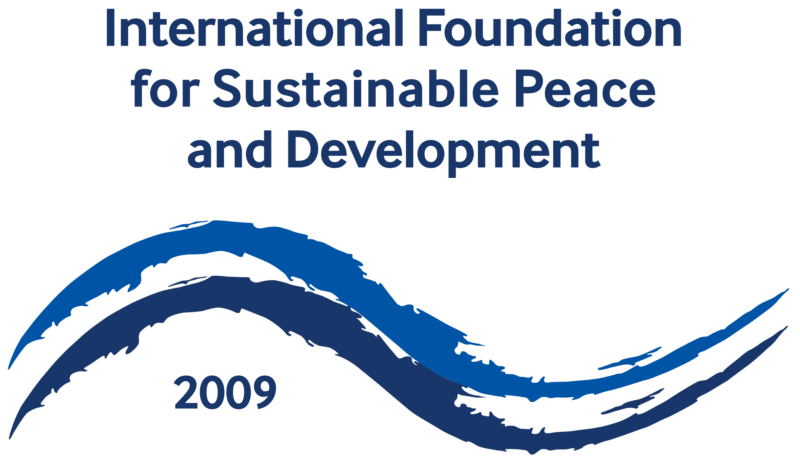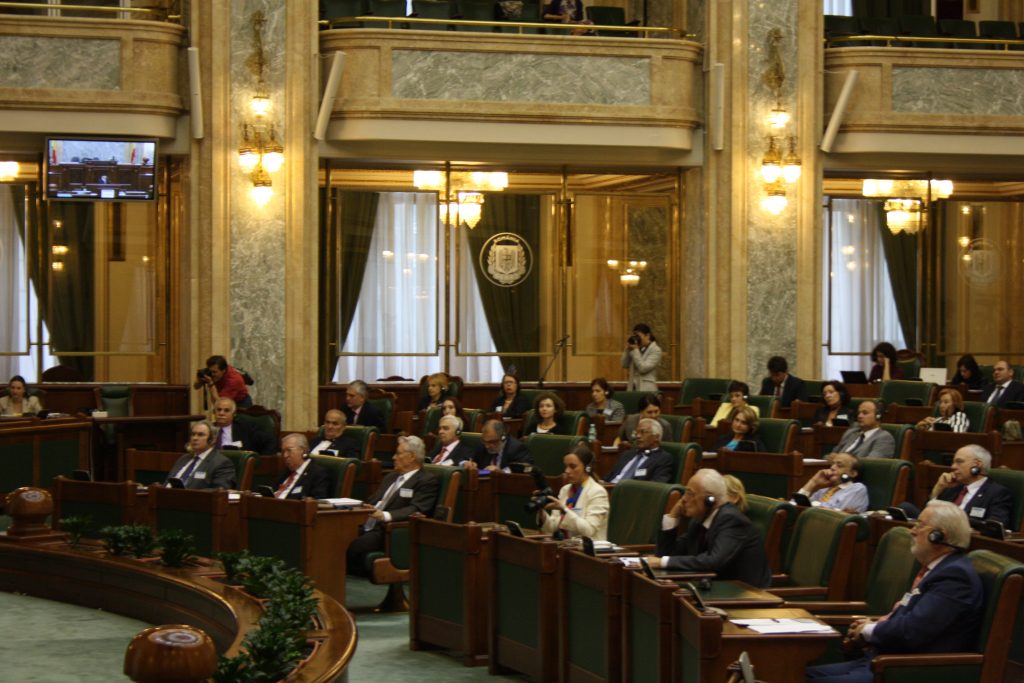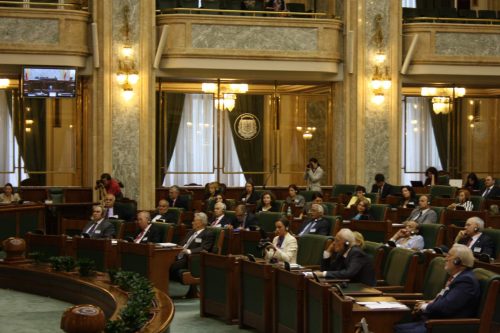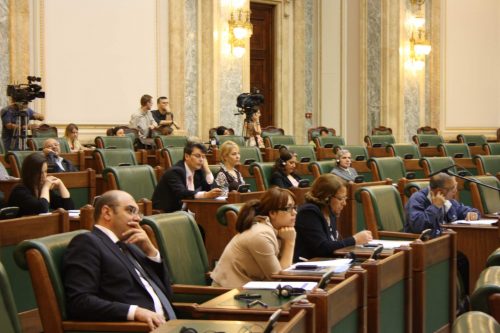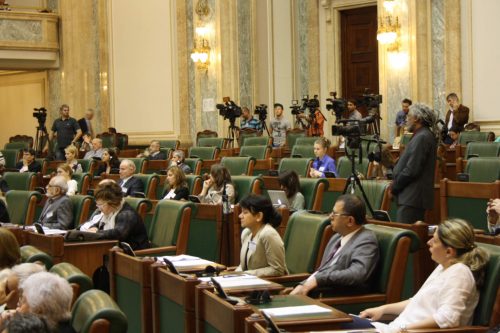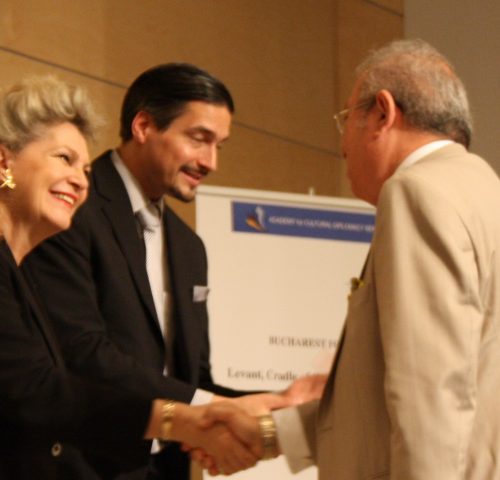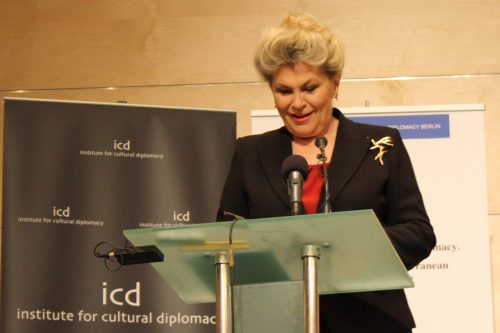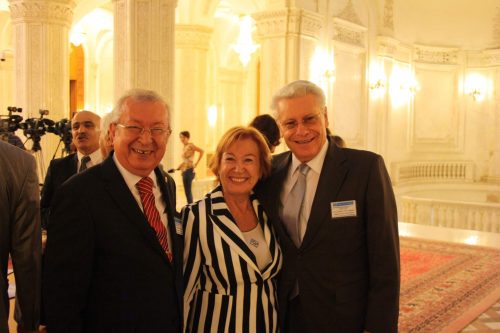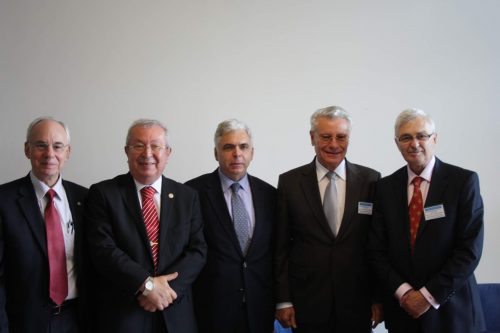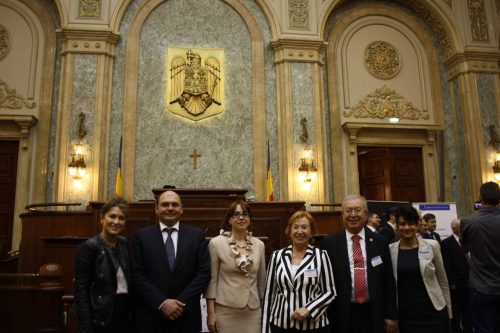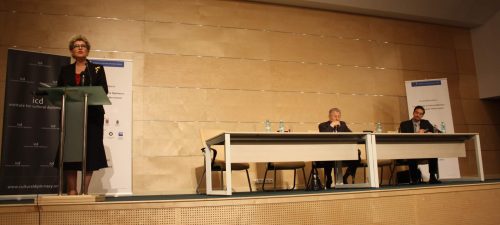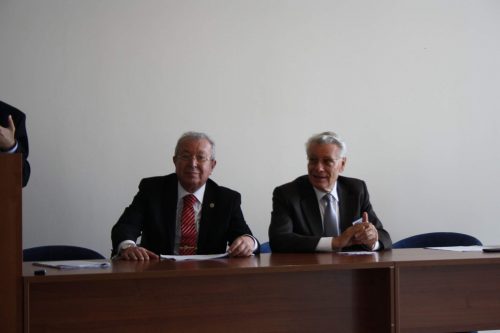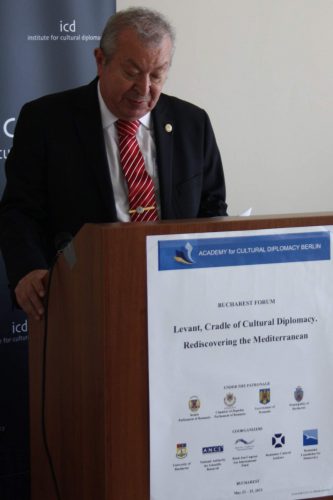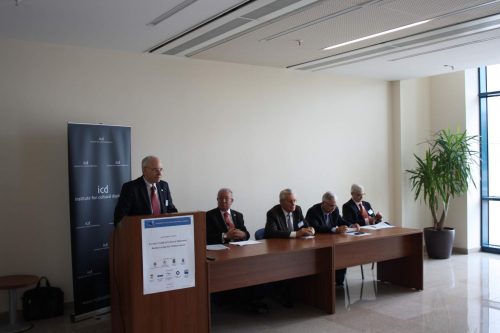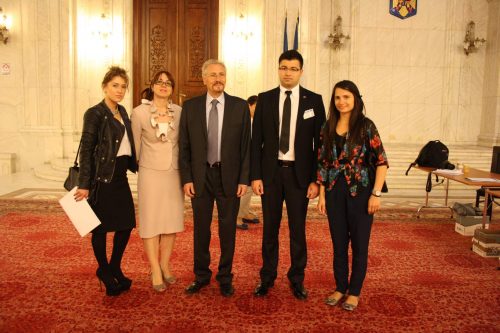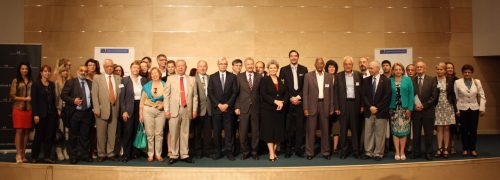During May 23 – 25, 2013, the Parliament House and the Bucharest National Library hosted the International Forum: „Levant, Cradle of Cultural Diplomacy: Rediscovering the Mediterranean”, organized by the Romanian Foundation for Democracy, in partnership with the Academy for Cultural Diplomacy in Berlin, Senate and Chamber of Deputies of Romania, Government of Romania, Romanian Cultural Institute, University of Bucharest and the International Fund for Cooperation and Partnership of the Black Sea and Caspian Sea (BSCSIF).An old cradle of universal civilization, the Mediterranean came again to the attention of the world through the revolutionary movements, which started in 2011 in North Africa and Middle Est. The perspective of extending the democratic space has created the premises for developing the cooperation among states and nations based on dialog and mutual understanding, enhancing the role of the cultural diplomacy and intercultural dialog. Based on an ancient tradition, the cultural ties among the Balkans, Middle East and North Africa countries continued in the second half of the 20th century, even during the Cold War, by educating intellectual elites in the universities of South-East Europe and by mutual cultural exchanges. The Levant – a cradle of cultural diplomacy for more than a millennium – can also be a valuable source of inspiration for the reconfiguration of the international relations in today’s world.
During three days of communications and debates sessions, the speakers tried to answer a range of questions related to the Levant significance and the role of its cultural heritage in the contemporary cultural dialog, to the traditions, the present and perspectives of the cultural diplomacy in Balkans, Middle-East and North Africa, to the development of research networks in the extended Mediterranean region, as well as to the reconsideration of the Mediterranean role in the 21st century.
The event was attended by distinguished personalities of the contemporary life, former heads of state, ministers, diplomats, academicians, professors, writers, journalists, experts and students from Romania, Turkey, Republic of Moldova, Greece, Cyprus, Azerbaijan, Austria, Italy, Switzerland, USA, Armenia, Albania, Bosnia and Herzegovina, Montenegro, Egypt and Israel.
Among other participants, the event was attended by Dr. Jelio Zhelev, President of Bulgaria 1990-1997, Dr. Petru Lucinschi, President of the Republic of Moldova 1997-2000, Prof. Dr. Rexhep Meidani, President of Albania 1997 – 2000, Prof. Dr. Ivo Slaus, President of the World Academy of Art and Science, Prof. Mark Donfried, Director and Founder of the Institute for Cultural Diplomacy in Berlin, Crin Antonescu, President of the Romanian Senate, Prof. Dr. Daniel Barbu, Minister of Culture, Dr. Titus Corlăţean, Minister of Foreign Affairs, Prof. Dr. Andrei Marga, President of Romanian Cultural Institute, Acad. Ionel Haiduc, President of Romanian Academy, Prof. Dr. Zoe Petre, Profesor Emeritus, Prof. Dr. Răzvan Theodorescu, Romanian Academy, Katalin Bogyay, President of UNESCO General Conference. The conference was opened by the Prof. Dr. Emil Constantinescu, President of Romania 1996 – 2000 and former president of the Academy for Cultural Diplomacy in Berlin.
The International Fund for Cooperation and Partnership of the Black Sea and Caspian Sea was represented by Mr. Akkan Suver, President of Marmara Foundation and President of BSCSIF, which held the presentation entitled „What is East?”, in the framework of the session on the theme „Levant. Present and Future”. As well, on behalf of BSCSIF, Alev Balgi, Executive Director, and BSCSIF experts: Orhan Mammadov, Luiza Niţă, Iulia Akhunova, and Valentina Albu took part in the event.
By the end of the debate sessions, the „Bucharest Declaration” was adopted, which is promoting the principles of cultural diplomacy and the development of relations between states on the basis of dialog and the revaluation of Levantine cultural heritage.
The Proceedings of the Bucharest Forum were collected in a special volume, published in English, by the Romanian Cultural Institute (RCI) and distributed in the entire world via the RCI centers.
